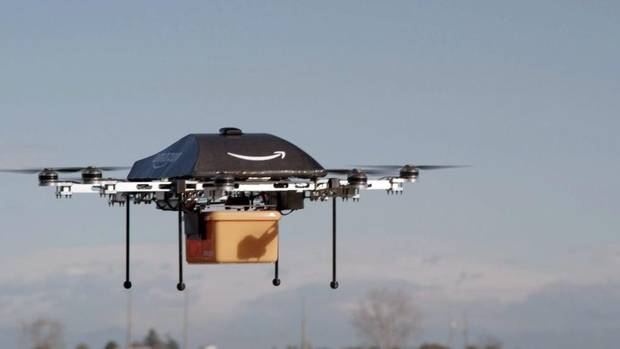Busy day? Here are five stories to help you catch up.
Air Canada pilots in spotlight
The two Air Canada pilots in control of the plane that crash landed in Halifax on Sunday will face tough questions from investigators. First up: why was the aircraft well below the proper flightpath when it hit the ground hundreds of metres short of the runway’s touchdown zone?
Controlled flight into terrain is the most common cause of major accidents among big airlines, Paul Koring reports.
That’s when pilots fly a perfectly sound aircraft into the ground because they broke the rules or lost spatial awareness. In other words, they didn’t know where they were, or went where they shouldn’t go.
It’s too early to know where the investigation will lead - mechanical failure, airport systems and weather will all be exhaustively probed - but pilot performance will certainly be looked at.
The investigation will take months or even years. The final report will make safety recommendations, not assign blame.
Three scenarios Canada may face in Syria against IS
In expanding its military mission against the Islamic State, Canada could become embroiled in the deteriorating situation in Syria.
Patrick Martin explains the potential scenarios:
Best case: Islamic State defeated: While bombing runs alone will not rout the Islamist State, the combination of air attacks and ground troops in Syria – along with success in driving IS forces from Iraq – could.
The Bashar al-Assad regime would take charge of the country again, meaning Canada would have assisted an Iranian-backed dictator in regaining national supremacy.
But the very best scenario would have Mr. al-Assad quickly hand over power to an interim authority that would oversee democratic elections.
Worst case: Islamists triumph: Islamic State and other Islamist groups succeed in driving Mr. al-Assad’s forces out of Damascus and declare what they term a “caliphate” in much of the country.
Mr. al-Assad and many of his fellow Syrian Alawites would flee to their homeland in the mountainous area near Latakia. Others would flee the country, adding to the refugee burden in neighbouring states.
Most likely: war without end: Without a ground campaign, the self-styled Islamic State will almost certainly survive and other Islamist groups will proliferate. But, even together, they would not likely be able to uproot the Assad regime.
The civil war against Damascus would continue and Islamic State would remain a target of the US-led coalition, including Canada.
Canada`s economy shrinks 0.1%
This winter’s harsh weather and the oil shock took their toll on Canada’s economy, which stalled in January.
The greatest weakness came from two major segments of the services sector: wholesale (down 2.6 per cent) and retail (down 1 per cent), David Parkinson reports.
The manufacturing sector - which is widely expected to lead Canada’s economic recovery this year as demand grows from the accelerating U.S market - also took a step backward in January. It slipped 0.7 per cent after a strong 2.1-per-cent rise in December.
That said, it could have been worse.
“There’s no denying that the Canadian economy had a poor start to 2015, but the drop in GDP wasn’t nearly as bad as some feared,” said Benjamin Reitzes, senior economist at Bank of Montreal.
The question now is how February turned out.
We’re aiding and abetting homeopathic quackery
The Ontario Homeopathy Act comes into force on April 1. And Andre Picard wishes it were an April Fool’s joke.
That’s because there’s no evidence that these concepts have any basis in biology, physiology or medicine, Picard writes.
Homeopaths believe that the water molecules retain a “memory” of the original substance, allowing nano-doses to trigger a healing response in the body. But scientists agree the effect homeopathic remedies have, if any, is that of a placebo.
Health Canada has taken the position that it is better to regulate the safety of homeopathic products – but not their effectiveness, as it does with prescription medicine – than to have no rules.
The problem is that these actions of government lend a veneer of legitimacy to homeopathy.
And the bigger problem is that all too often homeopathic concoctions are touted as a substitute for vaccination or other treatment of potentially life-threatening conditions.
Exacerbating these dangers is that most pharmacies sell homeopathic products. This is no doubt profitable, but is it ethical?

Canadian airspace is friendly to U.S. drones
American companies have a new reason to venture north: drones.
Amazon, for one, is increasingly taking advantage of Canadian airspace to conduct tests, Mike Hager reports.
The online shopping giant has been “rapidly experimenting” with unpiloted aircraft at a rural test site in British Columbia. The company plans to one day deliver small packages via low-flying drones to customers.
In Canada, drones are being used to produce films, help search-and-rescue crews and to monitor and inspect mines, pipelines and crops.
U.S. companies, hamstrung by their own restrictive laws that could take up to two years to change, can get Special Flight Operations Certificates from Transport Canada through a Canadian subsidiary.
This feature is a work in progress. What do you think of it? Tell us by tweeting with the hashtag #GlobeCatchUp
Follow Kat Sieniuc on Twitter: @katsieniuc